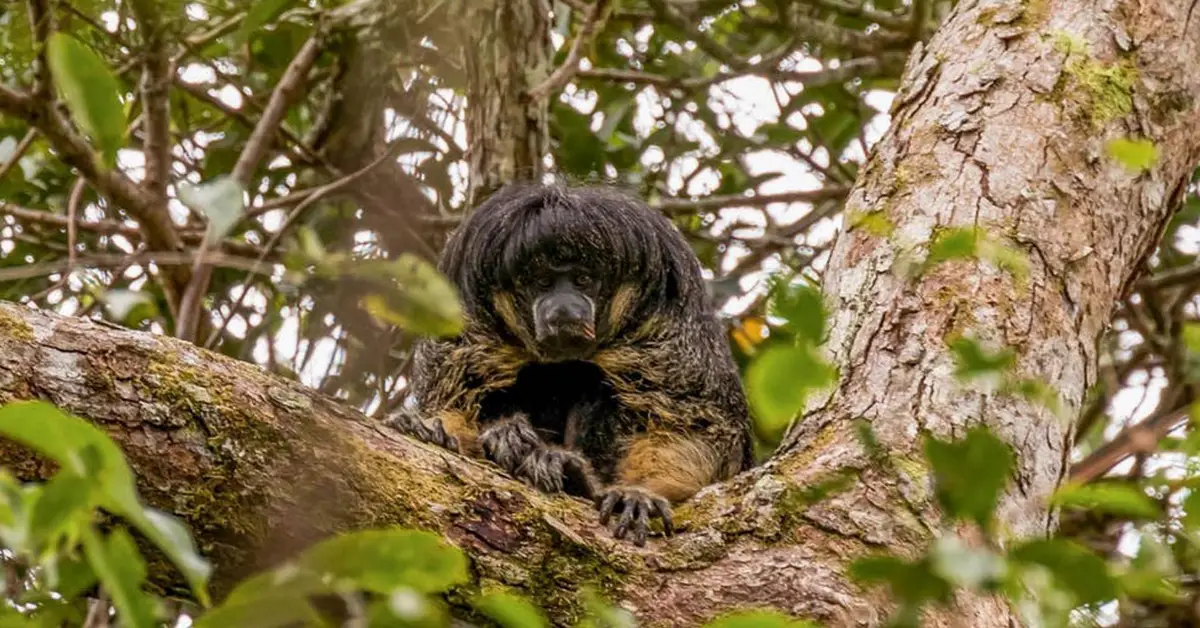Unfortunately the endangered animals list got larger than ever, over the last few year. But surprisingly, given the present tendencies, a wildlife species thought to be extinct, miraculously came back to life. The Vanzolini bald-faced saki.
The saki monkeys is a monkey species native to South America, particularly to the Amazonian forest. Among them, the Vanzolini bald-faced saki are the most elusive ones. In fact, the species – first spotted in 30’s – was thought to be gone since there was no sight of them for eight decades.

However, during a recent expedition, the shy creature, recognizable by its shaggy hair and golden legs, was spotted alive. A tremendous discovery given the actual wildlife and environmental delicate situation. Laura Marsh, the director of the Global Conservation Institute, was leading the expedition. “It was fantastic,” she said told National Geographic. “I was trembling and so excited I could barely take a picture.”

First discovered in the 30’s, the Vanzolini sakis first documentation goes back in 1936, when the journal of Alfonso Ollala describes the mysterious monkey as long fluffy tail and golden fur creature.
Marsh’s team has managed to track the elusive monkeys in a very isolated area of the tropical forest, somewhere at the border of Brazil with Peru. Despite their habitat seems to be completely untouched by humans, Laura Marsh still fears for the species future. “If it just stayed at this level of impact right now, it’s not ideal for the conservation of Vanzolini populations,” she said in the report published in the the journal Oryx.
Fortunately, the Vanzolini sakis aren’t the first species declared extinct and then rediscovered. Recently, the wildlife experts have confirmed the sights of some animals thought to be extinct. Among them the Formosan clouded leopard, Baiji dolphin, Pinta tortoise or the Caribbean monk seal.
Baiji dolphin, Pinta tortoise, Caribbean monk seal, Formosan clouded leopard. Few of the animals declared/presumed extinct in the 21st Century. Can’t be rebuilt. No amount of £ can bring them back. Gone. Mostly due to climate change/habitat destruction. 😞 pic.twitter.com/D7olk6CqeR
— Steve Antony (@MrSteveAntony) April 19, 2019
h/t: NationalGeographic

